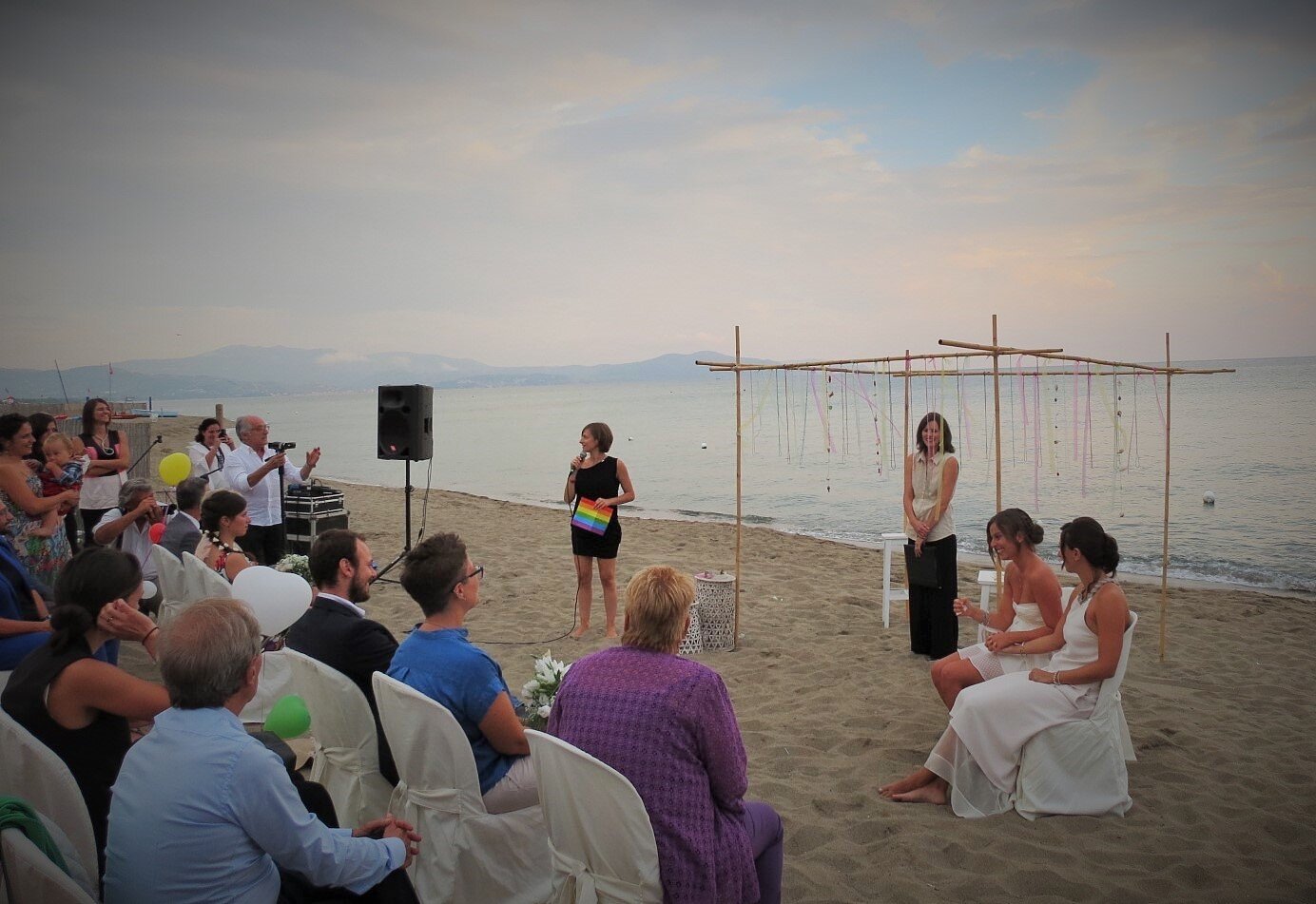Celebrant Clarissa Botsford smiling as the seated couple look at each other while holding hands. Photo by Inesse Handmade Photography. Wedding Planner: Mediterranea Wedding and Flowers
At a traditional wedding in Italy, be it a religious or civil ceremony, couples usually stand (or sit) with their backs to their guests, facing the priest or officiant. If you don’t tell the venue or your wedding planner your preference, this is usually how they will place you. But, this way you miss out on seeing your guests’ reactions and interacting with them, and they miss out on seeing the emotion on your faces (which, if we’re honest, is the thing that they most want to see!). However, in a celebrant-led wedding, there are no rules; as with every other aspect of your wedding, you are totally free to decide what’s best for you. Here are some suggestions about positioning that can make the experience of your wedding ceremony better for you and your guests.
One simple but powerful change is to stand (or sit) facing one another so that you can see and feel each other’s emotions, smiles, and tears. This position allows you to turn slightly towards your guests in the lighter moments of the ceremony, such as the love story, and thus include them. You can then turn your gaze back to one another in the more emotionally-charged moments exclusive to you, such as exchanging your personal vows, or during a special ritual.
Celebrant Sarah Morgan standing in the middle of the couple who for the vows face each other but her are facing slightly outwards and are interacting with their guests. Photo by Monica Leggio. Venue: Villa Pianciani (Spoleto, Umbria). Wedding Planners: Bianco Antico & Laura Bravi Events.
Whether to sit or stand is another choice and it depends on the length or your ceremony and the position you are more comfortable with. Sitting can be a good option if you are planning on involving other people in the ceremony in readings, music, or speeches. If sitting, sit together at a slight angle so you can follow the celebrant and see and interact with the guests. Naturally, if you choose this option, you would stand up for the part in which you are the complete, for the vows and the ring exchange.
Beach wedding with brides sitting to the side with celebrant in the middle (where they will go to say their vows) and reader on the other side
There are no hard and fast rules about who should be on what side, either. Traditionally, the bride was on the left, so that the groom’s sword-hand was free to defend her. In a Jewish wedding, the bride stands to the right of the groom under the Chuppah. In a celebrant-led wedding, you can choose. One of you may think you look better in the photos on one side rather than the other. Again, it’s your wedding so you get to decide.
Similarly, your guests do not have to sit in two different aisles. You can encourage them to mix. Or you can create a semi-circle around the focus — especially in a smaller wedding.
Another small variation can truly revolutionize the ceremony: your celebrant can be positioned away from the focus, for the whole ceremony or for parts of it, so that your guests — and very importantly the photographers — have you and only you in their sights, with nothing else in the frame. The celebrant can stand to one side, not too far away, so that you can maintain eye contact and hear the all-important words of the ceremony.
Whatever you do, make sure it is your decision. Your celebrant should be open to discussing all your options and explaining the advantages and disadvantages of them.












